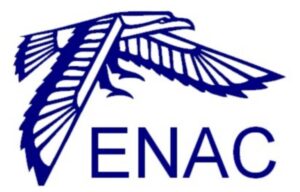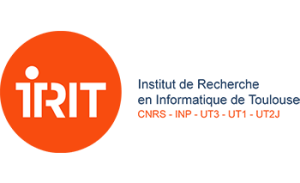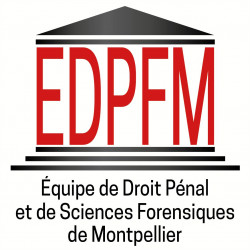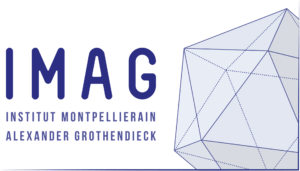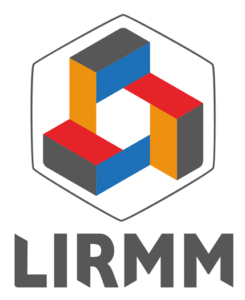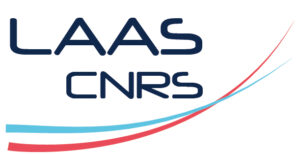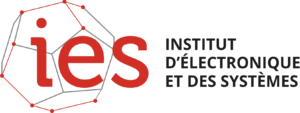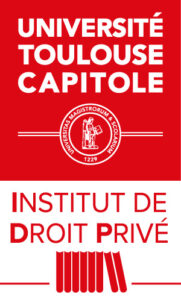The Institute
Background and context
Over the past twenty years, there has been an upsurge in cyberattacks targeting individuals, businesses, local authorities and public administrations, often at high cost. At the same time, the number of vulnerabilities has not decreased, despite the ongoing security awareness-raising campaigns.
Today’s digital ecosystem reflects a lack of security, due on the one hand to the increasing rate and severity of security incidents, and on the other to the constant emergence of new, increasingly sophisticated attacks. These attacks, when successful, can have a significant impact on the availability, integrity or confidentiality of users data, systems and associated applications.
Leaks, loss and theft of personal data, unauthorized access, cyber scams, phishing, distributed denial of service (DDoS), ransomware, digital identity theft, dissemination of false information and intimate content, cyber harassment, industrial cyber espionage – these are just a few examples of a phenomenon that is constantly evolving in step with technological developments.
Cybersecurity has thus become a priority issue at regional, national and international level, requiring innovative solutions.

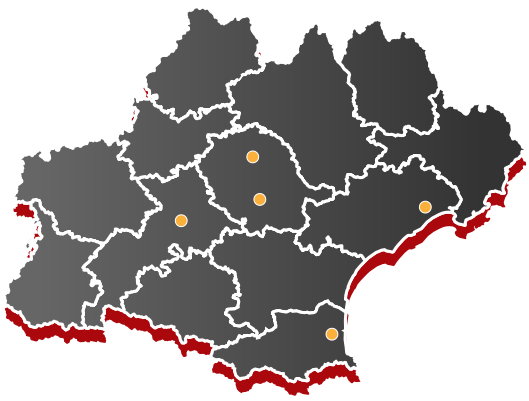
The Occitanie region
The Occitanie region is a propitious environment for the development of cybersecurity innovative actions thanks to the presence of several nationally and internationally recognized academic players, research labs and industry companies, located in particular in Toulouse and Montpellier, developing multi-disciplinary research work as well as eduction and training courses.
The expertise and quality of the products and services developed by industrial players, including major groups, SMEs and startups, is an additional asset for setting up ambitious collaborative projects.
Institutional actors are also supporting cybersecurity players, through the implementation of structuring programs and initiatives to help strengthen prevention, detection and response capacities against cyber threats.
La coordination de tout ce travail devient fondamentale pour répondre aux besoins de la région.
The “Institute for Cybersecurity in Occitanie” (ICO) project
The Occitanie Region provides financial support for selected projects called “Défis Clés Occitanie”, for “Key challenges”, which are collective strategies driven by the region’s scientific community, in connection with themes identified as key priorities. The Region is committed to involving universities and research labs in the proposed collective strategies, with the objective to cover the entire Research – Innovation continuum (economic and/or societal valorization): in addition to the objectives of scientific quality and academic structuring, these “Key-challenges” projects provide the opportunity to further develop cooperation with socio-economic players in the region (companies, local authorities, associations).
Funded by the Occitanie Region for five years, the Occitanie Cybersecurity Institute (ICO) was launched in January 2022, with the aim of positioning Occitanie among the leaders in cybersecurity in France. ICO reinforces this dynamic by stimulating upstream research, developing training, fostering collaborations and promoting scientific advances to support and federate players in this field.

Strategic documents

Presentation Brochure

Roadmap

Key figures

Activity Report
We’re in the News
About us
Governance
Le porteur scientifique du Défi-Clé « ICO », financé par la Région Occitanie, est Le Centre National de la Recherche Scientifique – Délégation Occitanie Ouest (CNRS DR14).
The project is funded by the Occitanie Region. It was initiated and coordinated by the research laboratory specialized in system analysis and architecture in Toulouse (LAAS-CNRS), the Laboratory of Computer Science, Robotics and Microelectronics of Montpellier (LIRMM) and Toulouse Computer Science Research Institute (IRIT). It also brings together over 15 research laboratories and universities in the Occitanie region, covering a wide range of disciplines (computer science and engineering, mathematics, humanities and social sciences).
The ICO is governed by a board, an executive committee, a steering committee and a project manager.
- The Board
- The Executive Committee (EC)
- The Steering Committee (SC)
- The Scientific Advisory Board (SAB)
- Project Manager
The ICO Board ensures the day-to-day operation of the Institute. It meets every two weeks. The scientific leaders of this project (representing LAAS-CNRS, LIRMM and IRIT), together with a representative from the human and social sciences (SHS) and the project manager are members of the board.
The Executive Committee (EC) brings together academic researchers representing research laboratories in cybersecurity in Occitanie, a representative of Cyber’Occ (the portal for cybersecurity in Occitanie), two industrial representatives, a representative of the National Agency for Information Systems Security (ANSSI) to foster links with the socio-economic ecosystem and national initiatives in cybersecurity, and a representative of the Occitanie Region. The EC is responsible for strategy and action, examining opportunities for collaboration and coordinating responses to national and international calls for projects. It defines and implements the ICO’s annual program of activities around the main research themes addressed by the ICO. In particular, the EC carries out the selection process of the applications received in the context of the calls for proposals set up by the EC. The EC meets at least three times a year.
The Steering Committee (SC) meets once a year. It brings together representatives of the project partners as well as representatives of the Occitanie Region in charge of research, innovation and higher education. The role of the SC is to initiate and validate the various actions put in place, in particular internal calls for proposals, events and funding. The EC reports annually to the SC on the activities and progress achieved.
The Scientific Advisory Board (SAB) is composed of outside scientists chosen for their recognized expertise in their field. The SAB is a driving force behind the ICO’s activities.
The project manager is in charge of coordinating the implementation of the project actions, budget management and communication.
Our members
The members of the ICO’s management and decision-making bodies include both the board and the executive committee, along with the project manager.
Project Manager

Denise Gross
The Board

Abdelmalek Benzekri

Florent Bruguier

Mohamed Kaaniche

Fabien Laguillaumie

Giorgia Macilotti

Vincent Nicomette
The Executive Committee (EC)
Abdelmalek Benzekri
Florent Bruguier
Mohamed Kaaniche
Fabien Laguillaumie
Giorgia Macilotti
Vincent Nicomette
Michele Bolognesi
Rémy Daudigny
Jean-Christophe Deneuville
Caroline de Rubiana
Jean-Marc Fourcade
Brahim Hamid
Géraldine Marconato
Marie-Christine Sordino
Arnaud Vena
Our partners
Our scientific goals
Innovation
The vulnerabilities exploited by attackers affect all the different layers of systems and hardware. Today, IT systems are increasingly embedded in mission-critical systems, such as avionics and automotive, as well as in multiple connected objects massively deployed in homes and business environments. The increasing connectivity of systems through the use of multiple heterogeneous communication protocols, notably wireless, has enabled the development of new services and uses, while introducing new threats that require reinforced protection against the risk of computer malware.
The search for the best tradeoffs between protection effectiveness, usefulness and acceptability is a fundamental challenge to which this Institute aims to provide innovative solutions.
Multidisciplinarity
Cybercrime, misinformation, privacy and data protection have also become real scientific and societal issues, due to the massive collection of data (whether consented to or not by users), the widespread of social networks and platforms for sharing personal information, among other factors. The development of artificial intelligence increases the need for an integral approach to cybersecurity.
As such, this proposal is intended to be multi-disciplinary, bringing together different communities in the digital sciences (mathematics, computer science, microelectronics, electronics, physics) as well as the legal and social sciences, whose approach adds an essential dimension to the societal understanding of security, and also to the design of solutions that are acceptable from a legal, ethical and economic point of view.
An excellence-driven cybersecurity sector in Occitanie
Today, the Occitanie region is recognized as a leader in the field of embedded systems security, particularly critical systems, taking into account all hardware, hardware/software and software layers, as well as vulnerabilities affecting low-level components (peripherals, physical layers, operating systems, etc.) or targeting wireless communication protocols.
ICO’s ambition is to position the Occitanie region as one of the top 3 cybersecurity clusters in France, and to contribute to the emergence of an industry of excellence, focusing on two application sectors that are historical markers for Occitanie: on the one hand, aeronautics, automotive and space, and on the other hand, healthcare.
Our missions
The ICO’s missions are focused on research and training in cybersecurity through :
Research Funding
Funding includes support for research actions through open calls for PhD (50%) and post-doc fellowships, funding for scientific projects and engineers to develop research demonstrators and prototypes, mobility co-funding, as well as support for the organization of scientific events, awareness-raising and training actions that contribute to boosting the visibility and attractiveness of the cybersecurity ecosystem in the Occitanie region. Proposals involving different laboratories or interdisciplinary subjects are strongly encouraged.
The reinforcement of human resources in this area will encourage exchanges between Occitanie- East and Occitanie-West, and enable the recruitment of high-caliber candidates from other regions and countries.
Research and Education Coordination
The dynamic generated by this Institute is aimed at helping to set up collaborative projects in response to national and European calls for proposals, as well as partnerships with industry.
The ICO’s ambition is to become a driving force in effectively coordinating initiatives between the various players in Occitanie, in order to build responses to major calls for projects such as Horizon Europe, the 4th Programme d’Investissements d’Avenir (PIA4) or the Programme et Équipement Prioritaire de Recherche (PEPR-Cybersecurity). Also to take advantage of the various existing partnership schemes (direct funding by industry, CIFRE theses, National Research Agency projects, among others).
Support, promotion and outreach
The ICO is the ideal framework for enhancing the potential of cybersecurity research and innovation in Occitanie.
Our aim is also to foster the emergence of strong skills by supporting initial and continuing training, offering new training modules on specific subjects, and carrying out actions to raise awareness and disseminate scientific culture among young people (schools, colleges). Initially, these initiatives will help prepare young people for their integration into their future professional activities. Secondly, they will support the development of cybersecurity skills among industrial players (from managers to employees), to help reduce the risks associated with the malicious use of digital technology, and to better manage crisis situations. Last but not least, they will help to promote gender diversity in the digital sector.
To promote the cybersecurity research carried out in Occitanie, the ICO organizes scientific days and supports national and international events. A summer school and a visiting researchers program are also among the objectives set to enhance the Institute’s international dimension.
Development of collaborations
Ce Défi-Clé propose de fédérer, à travers l’ICO, les forces en cybersécurité pour une meilleure visibilité de la région Occitanie. L’Institut est un label de qualité pour les entreprises, un point d’entrée également permettant d’établir des liens pérennes de collaboration avec les grands laboratoires de recherche en cybersécurité, le monde socio-économique, en travaillant en synergie et de façon concertée avec le Centre Régional en Cybersécurité « Cyber’Occ », les partenaires industriels, les différents clusters et pôles de compétitivité régionaux.
Initiatives to encourage entrepreneurship and the creation of start-ups from our laboratories are also put in place in this context.
Our research areas
4 key points
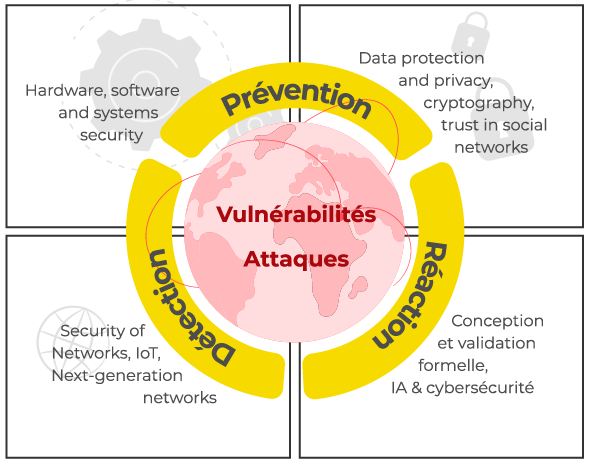
Hardware, software and systems security
The aim here is to develop new architectures and techniques to improve the security of processors and systems, considering both software and hardware aspects and their interactions.
Network security, future connected environments and emerging technologies
The aim here is to gain a better understanding of the risks associated with the deployment of Internet of Things (IoT) technologies, in particular their communication protocols, which are now massively present in our private and professional spaces, and more generally with the security of future programmable networks.
Data protection, privacy and trust in social networks
Research focuses on the development of advanced cryptographic techniques for securely processing encrypted data to protect user’s anonymity, in compliance with the GDPR, and on recommendations for making social networks safe from various forms of malice and abuse.
Issues linked to the acceptability, legality and ethics of security procedures, as well as regulatory means to foster trust, are also at the heart of the research carried out on this theme.
The aim is also to gain a better economic understanding of the links between competition and investment in cybersecurity.
Improving design through formal approaches and studying the impact/contribution of artificial intelligence
The aim of this area is to master design, facilitate vulnerability identification and auditing, and explore the issues linked to artificial intelligence algorithms, both as a tool for reinforcing cybersecurity, and as a target for attacks.
Our values and commitments

Interdisciplinarity

Scientific excellence

Cooperation

Cross-fertilization between academic and business actors

Knowledge transfer
through research

Cross-fertilization between academic
and business actors

Equal treatment
and openness to diversity

Environmentally friendly
